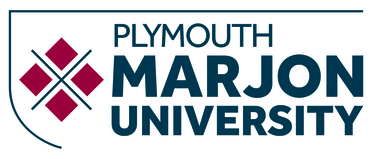Community Dads’ Groups and the Co-creation of Dadness.
Blackwell, Ian (2023) Community Dads’ Groups and the Co-creation of Dadness. Doctoral thesis, Plymouth Marjon University.
|
Text
Community Dads’ Groups and the Co-creation of Dadness..pdf - Accepted Version Download (2MB) |
Abstract
This research explores how attendance at community dads’ groups influences the construction of fathering identities. A qualitative methodology drawing on interactionist theory was used to analyse data collected through interviews and participant observation of four community-based dads’ groups in southern England during the period from summer 2018 to autumn 2019. 51 informal, semi-structured interviews were undertaken: with fathers who attend these groups (n=24), their children (n=8), the child’s mother (n=7; all co-resident), and dads’ group staff (n=12). Extensive field-notes captured observations of 182 participants and 14 staff on nine visits to these four fathering initiatives. An iterative, eclectic thematic analysis approach was used to analyse the data. Dadness is theorised as a process of identity construction and affirmation evidencing an on-going process of reflexive interaction with others, even if some dimensions, such as gender norms, appear pervasive. I argue that dadness is a useful in vivo term to describe eight dimensions of contemporary fathering identity. I demonstrate that fathers use the dads’ group sessions to interface with their child and with other fathers, often in subtle ways, in order to confirm, refine and evaluate different aspects of their dadness identity. As a result, community dads’ groups allow men to trial alternative behaviours that they may not have otherwise been exposed to. In addition, the children, staff and mothers are engaged in the identity co-creation and validation processes, subtly expanding the boundaries of dadness into more progressive territory. This study argues that fathering identity construction and validation in the context of community dads’ groups occurs as a collective accomplishment through a web of relationality. Through diverse processes and by deploying a range of strategies, interactants at these dads’ group initiatives support the co-creation of dadness that seeks to challenge regressive, hegemonic masculine traits. Within an ecological model, as settings of civic engagement at the meso-level, dads’ groups can make a valuable, if under-reported, contribution to fatherhood studies, family cohesion and gender equality debates.
| Item Type: | Thesis (Doctoral) |
|---|---|
| Depositing User: | Ms Raisa Burton |
| Date Deposited: | 20 Feb 2025 13:41 |
| Last Modified: | 20 Feb 2025 13:41 |
| URI: | https://marjon.repository.guildhe.ac.uk/id/eprint/17943 |
Actions (login required)
 |
Edit Item |

